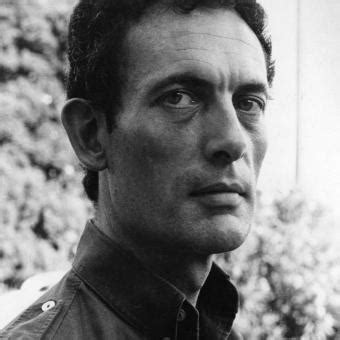A Quote by Hazrat Inayat Khan
People in the world wish to make things rigid, things which are of the finest nature which words cannot explain. When a person describes the hereafter, it is just like wanting to weigh the soul or photograph the spirit. I personally think that you must be able to realize yourself what the hereafter is. You must not depend upon my words.
Related Quotes
Do you not think that there are things which you cannot understand, and yet which are; that some people see things that others cannot? But there are things old and new which must not be contemplate by men´s eyes, because they know -or think they know- some things which other men have told them. Ah, it is the fault of our science that it wants to explain all; and if it explain not, then it says there is nothing to explain.
I wish I could remember the moment when I was a kid and I discovered that the letters linked into words, and that the words linked to real things. What a revelation that must have been. We don't have the words for it, since we hadn't yet learned the words. It must have been astonishing, to be given the key to the kingdom and see it turn in our hands so easily.
Due to his own original special nature, the Jew cannot possess a religious institution, if for no other reason because he lacks idealism in any form, and hence belief in a hereafter is absolutely foreign to him. And a religion in the Aryan sense cannot be imagined which lacks the conviction of survival after death in some form. Indeed, the Talmud is not a book to prepare a man for the hereafter, but only for a practical and profitable life in this world.
The spirit, if it could be seen with mortal eyes, would appear in bodily shape like a full-grown person with individual endowments that make it a counter-part of the body in which it [resides,] "that which is temporal in the likeness of that which is spiritual." (D&C 77:2.) It was that which came from God and entered at birth into the infant body prepared by its mortal parents. The spirit was of the "Lord from heaven." The physical body was "of the earth, earthy," (2 Cor. 15:47) or in other words, composed of the elements of which the things in the physical world are composed.
If people will be censors, let them weigh their words. I mean that the words were unfair by that disproportionateness of the condemnation, which everybody with some conscience must feel to be one of the great difficulties in denouncing a particular person. Every unpleasant dog is only one of many, but we kick him because he comes in our way, and there is always some want of distributive justice in the kicking.
Youth should be kept strangers to all that is bad, and especially to things which suggest vice or hate. When the five years have passed away, during the two following years they must look on at the pursuits which they are hereafter to learn. There are two periods of life with reference to which education has to be divided, from seven to the age of puberty, and onwards to the age of one and twenty.
One of the major symptoms of the general crisis existent in our world today is our lack of sensitivity to words. We use words as tools. We forget that words are a repository of the spirit. The tragedy of our times is that the vessels of the spirit are broken. We cannot approach the spirit unless we repair the vessels. Reverence for words - an awareness of the wonder of words, of the mystery of words - is an essential prerequisite for prayer. By the word of God the world was created.
In studying music, you're dealing with a person, not just what comes to you on a piece of paper, and it's important to get hold of what it is that lies between that person as a person, and the things which they're producing on the paper. I don't know whether I see things in too complex a fashion, but often people will do things which are not actually their nature, but will do things because they think that's what they should do.
Any photograph has multiple meanings: indeed, to see something in the form of a photograph is to encounter a potential object of fascination. The ultimate wisdom of the photographic image is to say: “There is the surface. Now think – or rather feel, intuit – what is beyond it, what the reality must be like if it looks this way.’ Photographs, which cannot themselves explain anything, are inexhaustible invitations to deduction, speculation, and fantasy
What is of the nature of spirit and soul must be gleaned from facts belonging to the spirit and soul; we shall then know that in the living thinking which is liberated from the will, a life-germ has been discerned which passes through the gate of death, goes through the spiritual world after death, and afterwards returns again to earthly life.
THE FATHER: But don't you see that the whole trouble lies here? In words, words. Each one of us has within him a whole world of things, each man of us his own special world. And how can we ever come to an understanding if I put in the words I utter the sense and value of things as I see them; while you who listen to me must inevitably translate them according to the conception of things each one of you has within himself. We think we understand each other, but we never really do.






































